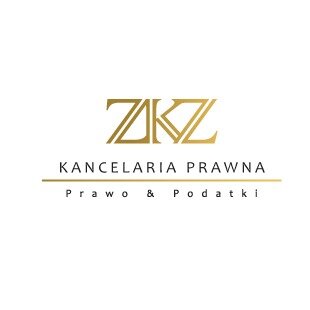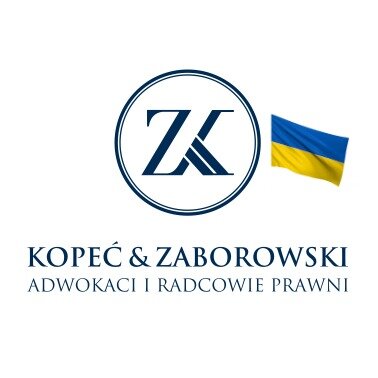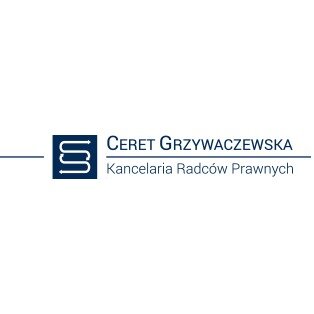Best Renewable & Alternative Energy Lawyers in Poland
Share your needs with us, get contacted by law firms.
Free. Takes 2 min.
Or refine your search by selecting a city:
List of the best lawyers in Poland
About Renewable & Alternative Energy Law in Poland
Renewable and alternative energy are becoming increasingly important in Poland as the country shifts toward a sustainable and carbon-neutral future. Rapid growth in wind, solar, biomass, and hydro energy projects is encouraged by both national and EU policies aimed at reducing greenhouse gas emissions and supporting clean energy investments. Renewable and alternative energy law in Poland governs the production, distribution, and consumption of energy derived from sources such as the sun, wind, water, and organic materials. It also covers incentives, permitting, grid access, and compliance with environmental standards, which are central to Poland’s energy transformation strategy.
Why You May Need a Lawyer
Engaging with renewable or alternative energy projects in Poland can be complex. Legal guidance is critical in several situations, such as:
- Starting or investing in solar, wind, biogas, or hydropower projects
- Securing permits and approvals from local or national authorities
- Navigating land acquisition or leasing for energy installations
- Participating in government auctions and incentive programs
- Resolving disputes related to grid access or connection agreements
- Understanding changing regulations and compliance requirements
- Protecting intellectual property linked to new energy technologies
- Handling environmental impact assessments and meeting sustainability standards
A lawyer with expertise in renewable and alternative energy law can help you navigate complex regulations, reduce risks, and protect your interests.
Local Laws Overview
Poland’s renewable and alternative energy sector is shaped by national laws, EU directives, and environmental policies. Key aspects include:
- Act on Renewable Energy Sources: This law sets out rules for energy generation from renewable sources, defines necessary permits, and enables access to support schemes like auctions or feed-in tariffs.
- Environmental Protection Regulations: Any energy project must comply with environmental impact assessments and various sustainability requirements.
- Zoning and Land Use Laws: Local planning regulations determine where different types of renewable energy installations can be built.
- Grid Connection Rules: Operators must follow detailed procedures to connect installations to the national electric grid, often requiring negotiations with local Distribution System Operators (DSOs).
- Incentives and Support Systems: Poland supports renewable energy investments through auctions, subsidies, and reduced administrative barriers for smaller installations (such as prosumers using solar panels).
- Compliance with EU Directives: Projects must align with the European Union’s climate and energy targets, such as those in the Fit for 55 package and Green Deal strategies.
Frequently Asked Questions
What types of renewable energy are most commonly used in Poland?
The most common sources are wind (especially onshore), solar photovoltaic, and biomass. Hydropower also plays a role, particularly in small-scale installations.
Do I need a permit to build a renewable energy installation?
Yes, most renewable energy projects require several permits, including environmental, zoning, and building permits as well as grid connection approval.
What support or incentives are available for renewable energy investments?
Poland offers several forms of support, including auctions for large-scale producers, feed-in tariffs for smaller installations, and financial incentives for prosumers.
Can individuals (prosumers) install solar panels on their homes?
Yes, individuals and small businesses can install solar panels and benefit from simplified procedures, self-consumption, and the ability to sell surplus energy to the grid.
What is the process for connecting a renewable energy installation to the grid?
You must apply to the relevant Distribution System Operator, obtain technical conditions, sign a connection agreement, and undergo technical inspections before commissioning the installation.
How are land use and zoning regulated for energy projects?
Local spatial development plans set permitted uses of land. For larger projects, rezoning or special permits may be required from municipal authorities.
Are there special requirements for environmental protection?
Yes, environmental impact assessments are often necessary, especially for larger projects. Compliance with biodiversity and landscape protection rules is mandatory.
What are renewable energy auctions in Poland?
Auctions are competitive bidding processes where energy producers offer to sell renewable electricity at a specified price over a set period. Winners receive long-term contracts with price guarantees.
Can foreign investors participate in renewable energy projects?
Yes, foreign individuals and companies can invest in and own renewable energy installations, subject to the same laws as domestic investors.
What happens if I fail to comply with renewable energy laws?
Non-compliance can result in fines, loss of incentives, or even shutdown orders for the installation, depending on the violation.
Additional Resources
For further information, consider reaching out to:
- Ministry of Climate and Environment - Provides policy guidance and environmental regulations
- Energy Regulatory Office (URE) - Oversees licensing, auctions, and energy market regulation
- National Fund for Environmental Protection and Water Management (NFOSiGW) - Offers financial support for green investments
- Polish Wind Energy Association (PSEW) and Polish Photovoltaics Association - Industry organizations offering advice
- Local legal aid centers or law firms specializing in energy law
Next Steps
If you need legal assistance in the renewable and alternative energy sector in Poland, start by identifying your specific needs, such as investment, permits, or dispute resolution. Gather relevant documents and project details, then consult with a lawyer or a law firm specializing in energy and environmental law. Many legal professionals offer an initial consultation to assess your situation and recommend next steps. You can also contact industry associations or governmental bodies for referrals to reputable legal experts. Taking prompt legal advice will help ensure your project is compliant, efficient, and successful.
Lawzana helps you find the best lawyers and law firms in Poland through a curated and pre-screened list of qualified legal professionals. Our platform offers rankings and detailed profiles of attorneys and law firms, allowing you to compare based on practice areas, including Renewable & Alternative Energy, experience, and client feedback.
Each profile includes a description of the firm's areas of practice, client reviews, team members and partners, year of establishment, spoken languages, office locations, contact information, social media presence, and any published articles or resources. Most firms on our platform speak English and are experienced in both local and international legal matters.
Get a quote from top-rated law firms in Poland — quickly, securely, and without unnecessary hassle.
Disclaimer:
The information provided on this page is for general informational purposes only and does not constitute legal advice. While we strive to ensure the accuracy and relevance of the content, legal information may change over time, and interpretations of the law can vary. You should always consult with a qualified legal professional for advice specific to your situation.
We disclaim all liability for actions taken or not taken based on the content of this page. If you believe any information is incorrect or outdated, please contact us, and we will review and update it where appropriate.
Browse renewable & alternative energy law firms by city in Poland
Refine your search by selecting a city.

















